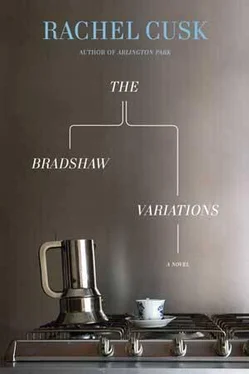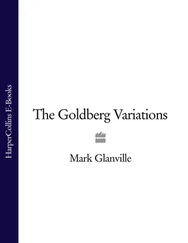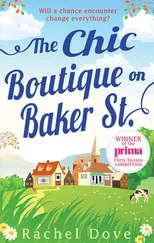‘I think I see it,’ she says. There is something big and blue in the distance. Are buses blue? She thinks they might be.
Tonie peers. ‘That’s not a bus,’ she says, laughing.
Alexa frowns, looks at her shoes. She looks at the grimy pavement.
‘Here it is,’ Tonie says. ‘This is it.’
The bus is coming towards them, a double-decker, dark red and cream. Alexa recognises it, the cartoon face with round headlight eyes, the tall flat front winking in the sun, the people looking out of the dusty upper-storey windows. It surges out of nothingness, all colourful and alive. She feels relieved. It comes in its certainty, its reality, and her doubt disappears.
‘Can we sit at the top?’ she says.
There is a man up there with a little dog. The dog sits on the man’s lap, looking at Alexa. Alexa looks back through the gap in the seats. It has a twitching little nose and funny brown eyes. She looks at the man and then back at the dog.
‘It’s all right,’ he says. ‘She won’t hurt you.’
‘What’s she called?’ Alexa says.
‘She’s called Jill,’ says the man.
Alexa puts her hand through the gap and strokes Jill’s coarse little head. The head moves eagerly beneath her fingers. The stubby tail wags. The brown eyes are willing.
‘She likes that,’ the man says.
Alexa turns to her mother.
‘Look, she likes me,’ she says.
‘I can see that,’ her mother says. She is smiling. Alexa imagines her feeling glad, that the dog likes Alexa. Yet her eyes are not as willing as Jill’s. Her smile has something secret in it, something private and sealed.
‘Can we get a dog?’ Alexa says. ‘Can we?’
Her mother’s face closes shut. She turns and looks out of the window.
The museum is big inside, like a church. It glimmers brownly, as detailed as a forest, little scenes everywhere behind glass. People’s footsteps echo when they walk. They go upstairs, to Alexa’s favourite room. The room is full of gemstones, crystals, rocks, all lying on their black plinths. Each one is lit up. The light is white and limited, precious in the surrounding blackness. It glitters like frost on the crystals and the rubies, the aconite, the amethyst. The crystals are strange, slightly frightening. They seem to have a mind and purpose of their own. They look like things that could take over the world, with their startling thrust-like growths. Alexa imagines a crystal world, growing and advancing out of the dark earth, obliterating language. Her favourite stone is the purple amethyst. It is like a flower. Its ladylike colour pleases her.
‘These are so weird,’ Tonie says, moving along the glass cases.
‘Which one do you like?’ Alexa asks her. She wants her to like something.
‘I like that one. The opal.’
She points. The opal is pale and milky. It is not a colour. It is vague, like a cloud. Alexa looks at it. She waits for it to tell her something, but it seems to lie beyond her comprehension. It is secretive. She wonders why her mother likes it. She wonders why she doesn’t choose the flowerlike amethyst.
‘Look at that,’ Tonie says, pointing at a spiked hunk of black quartz, flecked with light. ‘That’s like something out of a horror film.’
Alexa laughs. She imagines the black rock, rampaging through outer space. She makes her fingers into spikes and growls like a monster. Tonie smiles.
‘Let’s keep going,’ she says.
They walk through silent rooms filled with animals. Tonie seems to like these rooms. She stops and looks and reads the names of things aloud from the little cards. The animals are all dead. Alexa wonders whether Tonie is being respectful, stopping at each one and reading out its name; whether she feels sorry for the animal, having to die. There is a polecat crouched on a fake branch, looking at Alexa with yellow eyes. Suddenly she is afraid. She wishes she hadn’t noticed its eyes. Now, all the animals seem to be looking at her, the fierce eyes of exotic birds, the strange hooded downward glance of a bear standing on its hind legs, the narrowed eyes of things that are baring their teeth: they are all motionless yet poised, as though awaiting their opportunity. But she knows they are dead.
‘Who does that remind you of?’ Tonie says, pointing at the porcupine, with its fussy little face and extravagant rigid plumage of quills.
Alexa doesn’t know who it reminds her of. She wonders if Tonie is saying that it reminds her of Alexa.
‘Daddy?’ she says.
Tonie laughs. ‘Not Daddy. Grandma.’
‘Why is it like Grandma?’
Tonie laughs again. It seems she doesn’t feel sorry for the animals after all. They remind her of things that are alive. Alexa thinks it is dangerous, to connect the living with the dead. She worries that her mother is endangering people.
‘Oh, no reason really,’ Tonie says.
‘Can we go and see Grandma?’
‘Not right now we can’t.’
‘When can we see her?’
‘I don’t know,’ Tonie says. ‘I don’t know the answer to that.’
She stares into the glass case with the porcupine.
‘Can we go to the shell room now?’ Alexa says.
‘If you want. Don’t you like the animals?’
‘I don’t like their eyes,’ she says, reluctantly. She thinks her mother ought to know about their eyes. She thinks she should know, to be more careful.
They go back out into the main hall, with its dim commotion, its underwater light and strange echoing sounds. Alexa can’t remember where the shell room is. They look around, peering into rooms full of old pots and china plates, rooms bristling with swords and lances, rooms with plaster people in old-fashioned clothes. Today Alexa doesn’t want to look at human things. They seem dowdy and sad, compared with the spangled eternal crystals, the miniature perfection of shells. But she cannot remember how to find the shells.
‘Maybe there isn’t a shell room,’ her mother says.
‘There is. I remember it.’
‘Are you sure? Maybe you remember it from a different museum.’
‘I remember the one here ,’ Alexa says, though her mother’s words have unnerved her. This can happen, she knows it can. You can remember something, and you can fail to ever find it again, no matter how hard you look. The perfect shells, so pink and miraculous, so blank and yet so intricate, might never again be found.
‘Well,’ Tonie says, ‘I’m pretty sure it isn’t here now.’
‘It is!’ Alexa cries. ‘It is here!’
Her mother stops, looks at her. Then she says,
‘I’ll go and ask at the information desk.’
She leaves Alexa on a bench in the hall. When she returns her face is different. She holds out her hand.
‘They’ve moved them,’ she says. ‘They’re in Coasts and Rivers. It’s all changed since the last time I was here.’
‘So I wasn’t wrong,’ Alexa says.
‘You weren’t wrong. You were right. We were both right.’
Coasts and Rivers is new. It is dark and glamorous around the lit-up displays. There are recorded voices speaking, and buttons you can push that turn on little chains of lights. Alexa finds the shells, but they are not as she remembered them. They are different. The display is full of sand, and there are dirty-looking nets with plastic starfish in the tangles. The shells lie on the sand carelessly, as though someone just dropped them there. Somehow, they have become ordinary. She turns away, goes to find her mother. She walks through the darkness and the voices, through the unfamiliar carpeted spaces. At last she sees her, at the far end of the room. She is standing in a labyrinth of shadows. She is looking through glass, a greenish light on her face. Alexa approaches and stands beside her. In front of her is a river scene, with jewelled dragonflies in the reeds and a plaster swan sitting on the painted blue water. This is what her mother is looking at. The river twists and turns between its green banks, meanders away amid trees into painted distances. There is a kingfisher, and little animals on the banks, and a duck with her ducklings. There are flowers, and a bird’s nest full of tiny eggs. But it is the swan that is beautiful, central, in its splendour of white. Alexa stands beside her mother at the glass. She has never seen something so lovely as this place. She wishes she could walk into it, sit on the enchanted banks beside the river and feed the swan, walk and walk among the trees until she was out of sight. She aches to enter its reality. She feels it, the ecstasy of the imaginary becoming real.
Читать дальше












